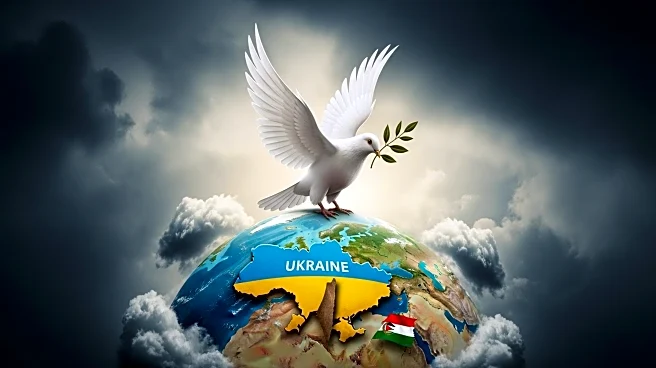What's Happening?
President Trump is facing challenges in his efforts to mediate peace in both Ukraine and Gaza. Despite diplomatic engagements, including a summit with Russian leader Vladimir Putin, conflicts in these regions continue to escalate. In the Middle East, Trump's support for Israel's military operations in Gaza has not led to a resolution, and recent Israeli strikes have further complicated the situation. In Ukraine, Russian military incursions into NATO airspace have heightened tensions, with Trump expressing concern over potential 'big trouble.' These developments highlight the difficulties in achieving peace and the complexities of international diplomacy.
Why It's Important?
The ongoing conflicts in Ukraine and Gaza have significant implications for international stability and U.S. foreign policy. President Trump's efforts to mediate peace are critical in addressing these crises, but the lack of progress underscores the challenges of diplomacy in complex geopolitical landscapes. The situation in Gaza, in particular, has drawn international attention, with Western nations moving to recognize Palestinian statehood as a response to the humanitarian crisis. The escalation of tensions in Ukraine also poses risks to European security and highlights the need for coordinated international efforts to prevent further conflict.
What's Next?
As the UN General Assembly approaches, President Trump and his administration will likely face increased pressure to address these conflicts and demonstrate progress in peace efforts. Diplomatic engagements with key stakeholders, including Russia and Israel, will be crucial in shaping the future of these conflicts. The international community will be closely watching for any developments that could lead to a de-escalation of tensions and a path towards peace. The outcomes of these efforts will have significant implications for global security and U.S. diplomatic standing.








